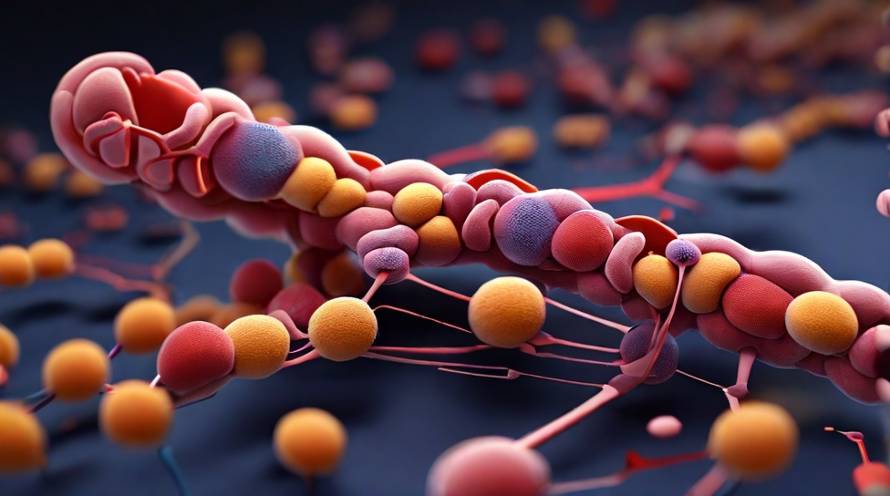Researchers from the University of Colorado Department of Medicine have discovered how bacteria in the digestive system can transform tryptophan, an essential amino acid found in protein-rich foods, into an inflammatory substance that may lead to arthritis. The study, published in the Journal of Clinical Investigation, sheds light on the complex relationship between diet, gut bacteria, and inflammatory diseases like rheumatoid arthritis.
Tryptophan, which is not produced by the body and must be obtained through diet, plays a crucial role in various bodily functions, including the production of proteins, muscles, enzymes, and neurotransmitters. While tryptophan is often associated with the sleepy feeling after a Thanksgiving meal, its role in post-dinner drowsiness is likely minimal.
The research team, led by Dr. Kristine Kuhn, head of the CU Division of Rheumatology, aimed to understand how tryptophan, generally a beneficial substance, can be converted into a pathway for inflammatory diseases. They discovered that gut bacteria can break down tryptophan into byproducts called indoles, some of which are anti-inflammatory, while others contribute to inflammation.
By conducting experiments on mice, the researchers found that eliminating the gut bacteria through antibiotics or reducing tryptophan in the diet prevented the development of arthritis. They also observed that the presence of indole led to the development of more inflammatory T-cells and antibodies, while reducing the number of regulatory T-cells that maintain balance in the immune system.
The findings suggest that blocking the generation of indole may offer a unique therapeutic approach for rheumatoid arthritis and related conditions. Dr. Kuhn and her team are interested in exploring ways to manipulate intestinal bacteria to promote the anti-inflammatory properties of tryptophan and prevent the inflammatory pathway.
While the research does not directly suggest dietary changes, Dr. Kuhn notes that a Mediterranean-style diet rich in plant-based fibers and lean meats seems to promote a healthier gut microbiome, favoring the anti-inflammatory properties of tryptophan. In contrast, a typical Western diet may lead to a more inflammatory pathway.
The Division of Rheumatology is also working on identifying individuals at risk of developing rheumatoid arthritis based on blood markers, with the goal of intervening during this period to prevent the onset of the disease.
#GutHealth
#Arthritis
#Tryptophan
#InflammatoryDiseases

